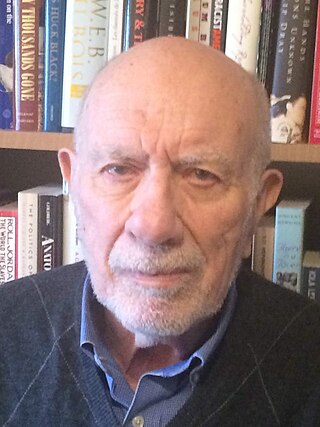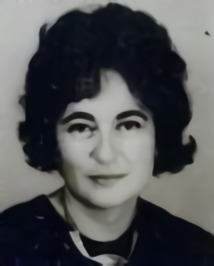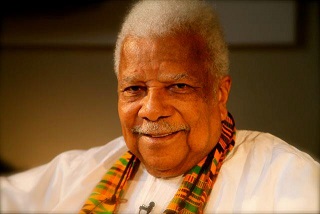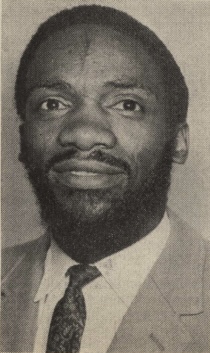
Robert Paul Wolff is an American political philosopher and professor emeritus at the University of Massachusetts Amherst.
Christopher Ehret, who currently holds the position of Distinguished Research Professor at UCLA, is an American scholar of African history and African historical linguistics particularly known for his efforts to correlate linguistic taxonomy and reconstruction with the archeological record. He has published ten books, most recently History and the Testimony of Language (2011) and A Dictionary of Sandawe (2012), the latter co-edited with his wife, Patricia Ehret. He has written around seventy scholarly articles on a wide range of historical, linguistic, and anthropological subjects. These works include monographic articles on Bantu subclassification; on internal reconstruction in Semitic; on the reconstruction of proto-Cushitic and proto-Eastern Cushitic; and, with Mohamed Nuuh Ali, on the classification of the Soomaali languages. He has also contributed to a number of encyclopedias on African topics and on world history.

Heloise Ruth First was a South African anti-apartheid activist and scholar. She was assassinated in Mozambique, where she was working in exile, by a parcel bomb built by South African police.

Critical race theory (CRT) is a cross-disciplinary examination – by social and civil-rights scholars and activists – of how laws, social and political movements, and media shape, and are shaped by, social conceptions of race and ethnicity. The word critical in the name is an academic reference to critical thinking, critical theory, and scholarly criticism, rather than criticizing or blaming people.

African nationalism is an umbrella term which refers to a group of political ideologies in sub-Saharan Africa, which are based on the idea of national self-determination and the creation of nation states. The ideology emerged under European colonial rule during the 19th and 20th centuries and was loosely inspired by nationalist ideas from Europe. Originally, African nationalism was based on demands for self-determination and played an important role in forcing the process of decolonisation of Africa. However, the term refers to a broad range of different ideological and political movements and should not be confused with Pan-Africanism which may seek the federation of several or all nation states in Africa.

Ali Al'amin Mazrui, was a Kenyan-born American academic, professor, and political writer on African and Islamic studies, and North-South relations. He was born in Mombasa, Kenya. His positions included Director of the Institute of Global Cultural Studies at Binghamton University in Binghamton, New York, and Director of the Center for Afro-American and African Studies at the University of Michigan. He produced the television documentary series The Africans: A Triple Heritage.
Jack Nusan Porter is an American writer, sociologist, human rights and social activist, and former treasurer and vice-president of the International Association of Genocide Scholars. He is a former assistant professor of social science at Boston University and a former research associate at Harvard's Ukrainian Research Institute. He is a research associate at the Davis Center for Russian and Eurasian Studies at Harvard University, doing research on Israeli-Russian relations, especially the life of Golda Meir, as well as doing work on mathematical and statistical models to predict genocide and terrorism and modes of resistance to genocide. His most recent books are Is Sociology Dead?, Social Theory and Social Praxis in a Post-Modern Age, The Genocidal Mind, The Jew as Outsider, and Confronting History and Holocaust.
Sondra Hale is Professor Emeritus of Anthropology and Gender Studies at the University of California, Los Angeles (UCLA); former Co-editor of the Journal of Middle East Women's Studies and former Co-Chair, Islamic Studies. Her regional interests are in Africa and the Middle East, focusing mainly on Sudan and Eritrea.

Osiris Rising: A Novel of Africa Past, Present and Future is a novel written by Ayi Kwei Armah and published in 1995. The story revolves around an African-American woman, Ast, who goes to Africa looking for heritage after she gets her PhD. The text addresses a number of contemporary African issues, including the residual colonial institutions that limit African culture, the hypocritical nature of African Americans and expatriates who try to help Africa and the contemplation of "What is African history and culture?" The book is published by Per Ankh, a Senagalese publishing company.

Postcolonial international relations is a branch of scholarship that approaches the study of international relations (IR) using the critical lens of postcolonialism. This critique of IR theory suggests that mainstream IR scholarship does not adequately address the impacts of colonialism and imperialism on current day world politics. Despite using the language of post-, scholars of Postcolonial IR argue that the legacies of colonialism are ongoing, and that critiquing International Relations with this lens allows scholars to contextualize global events. By bridging postcolonialism and International Relations, scholars point to the process of globalization as a crucial point in both fields, due to the increases in global interactions and integration. Postcolonial IR focuses on the re-narrativization of global politics to create a balanced transnational understanding of colonial histories, and attempts to tie non-Western sources of thought into political praxis.

Burning Grass is a novel by Nigerian author Cyprian Ekwensi. It was published in 1962 as the second book in Heinemann's African Writers Series.

Ioan Myrddin Lewis FBA, popularly known as I. M. Lewis, was a professor emeritus of anthropology at the London School of Economics.
The University of California, Los Angeles Asian American Studies Center (AASC) is an organization that educates students and the general public about the history of Asian American and Pacific Islanders and their experiences. The AASC is one of the leading and groundbreaking organizations to have substantial and credible resources for their research. Located in Campbell Hall, the AASC quickly became a center for resource-gathering and scholarship for the Asian American movement. Asian American student organizations at CSULA, Occidental, USC, and other colleges soon followed. It was a vital hub and training ground for young activists, a place where they could earn a salary while doing community work.
Zine Magubane is a scholar whose work focuses broadly on the intersections of gender, sexuality, race, and post-colonial studies in the United States and Southern Africa. She has held professorial positions at various academic institutions in the United States and South Africa and has published several articles and books.
Research in transnational American studies, a field of American studies, foregrounds the complex relationships amongst nations, cultures and histories that intersect with the United States of America. A significant impulse driving the development of transnationalist American studies is the pursuit of analytical methods that are less likely to reinforce the ideology of American exceptionalism by removing the nation state as the "natural" frame for analysis. This re-examination of American studies can be seen as a critical response to the significant role the U.S. State Department historically played in promoting American studies outside of the United States. Shelley Fisher Fishkin, in her 2004 Presidential Address to the American Studies Association, argued that a transnational focus for American studies would foster studies that frame the United States as a "participant in a global flow of people, ideas, texts, and products."

Cynthia Ann Orozco is a professor of history and humanities at Eastern New Mexico University known for her work establishing the field of Chicana studies.
Willard R. Johnson is an American political scientist and African studies expert. He is a professor emeritus of political science at the Massachusetts Institute of Technology. Johnson studies the development of political institutions and international relations, with a particular focus on Cameroon and other African countries. He was also an activist on issues relating to African politics, for example United States Government disinvestment from South Africa during Apartheid.

Black Marxism: The Making of the Black Radical Tradition, first published in 1983 and again in 2000, is a book written by the scholar Cedric Robinson. Influenced by many African-American and Black economists and radical thinkers of the 19th century, Robinson creates a historical-critical analysis of Marxism and the Eurocentric tradition from which it evolved. The book does not build from nor reiterate Marxist thought, but rather introduces racial analysis to the Marxist tradition.

Naira Power is 1982 novel by Nigerian writer Buchi Emecheta. It was published as part of the Pacesetter series published by Macmillan.

Archibald Boyce Monwabisi Mafeje, commonly known as Archie Mafeje, was a South African anthropologist and activist. Born in what is now the Eastern Cape, he received degrees from the University of Cape Town (UCT) and the University of Cambridge. He became a professor at various universities in Europe, North America, and Africa. He spent most of his career away from apartheid South Africa after he was blocked from teaching at UCT in 1968.












